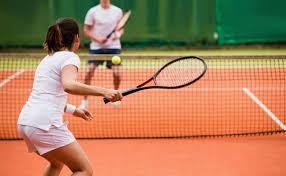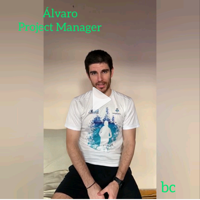
At buscarcole.com we asked ourselves this question during the confinement caused by the covid-19 pandemic. In this situation of emotional stress that we are all living through, talking about competing may seem strange, but it is not. Some of the testimonies that have spoken to buscarcole.com explain this.
Some adults associate the word 'compete' with an aggressive and dirty mentality.
They do this for two reasons. First, because they believe that competition puts too much pressure on people (especially children). Second, because they believe that the frustration of not achieving the expected result will create unnecessary stress. And to protect children from that frustration, some parents decide to declare everyone a champion or simply avoid any kind of competition.
Is that the right answer?
Experts believe that competition, properly explained and understood, placed within the parameters of a sport, helps the development of tools that can then be applied when children and young people become adults.
Competition will teach them that it is not always the smartest and brightest who are the winners, but rather those who work hard and are persistent. Children who participate in competition in a sport, whatever it is, exercise social skills by having to interact with other children and take turns. They are encouraged to be empathetic, tenacious, expand their comfort zone and at the same time learn to develop self-esteem and self-efficacy. It is important that the child experiences the sense of instability and uncertainty that comes from competitive situations. This is not a bad thing, on the contrary. Competition within sport helps to acquire the ability to solve problems, to accept the rules (rules of the game), to understand each other within a team, to win and lose gallantly, to be patient, to strive to be better, to know that natural ability (skill) can be modified, to develop self-esteem and to compare oneself with oneself before others.
How can adults help?
Help them to define achievement, not just as an activity to win but as the act of setting a goal, of thinking about an objective that is possible to achieve. Try to help them to persist in an activity, to pursue challenges, to overcome challenges, continually reinforcing the message that it is not about winning, as long as they try hard and learn from the experience.
Let's teach them that making mistakes is not a bad thing. It may feel uncomfortable and unpleasant, but making mistakes is still a wonderful opportunity to learn and motivate them to improve. We must help them to focus on what they can control, on their concentration, on effort, on good behaviour, on fighting, on commitment, on being brave, on taking deliberate risks.
The child competes badly when he or she focuses on external results, on impressing. If he cheats, if when he loses he withdraws or says he is in pain, if he loses his temper, if he doesn't sleep at night, if he cries. This is the time when we must help and strengthen their character. Now is when we must teach them to stay calm with breathing exercises, to focus on what is important, on the moment, to keep persevering, to enjoy the challenge.
All children's experiences of competition will help them to become more capable adults, who will not fall apart every time things get difficult for them. Because adult life always forces us to deal with complications. Let's prepare young people for it.
Seven people have recorded short videos for buscarcole.com. They tell us how having competed when they were young has helped them in life. Let's hear what they have to say:






